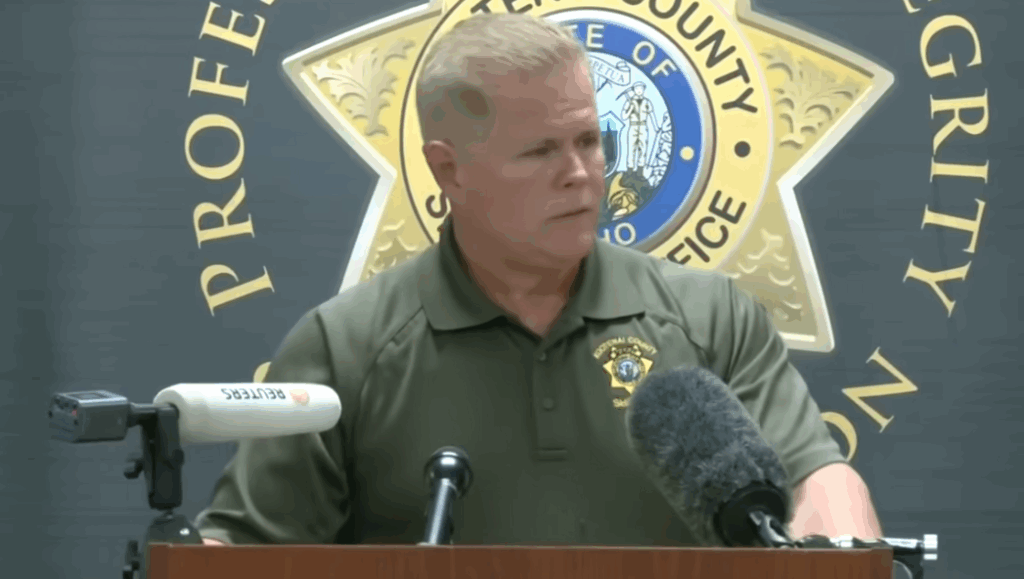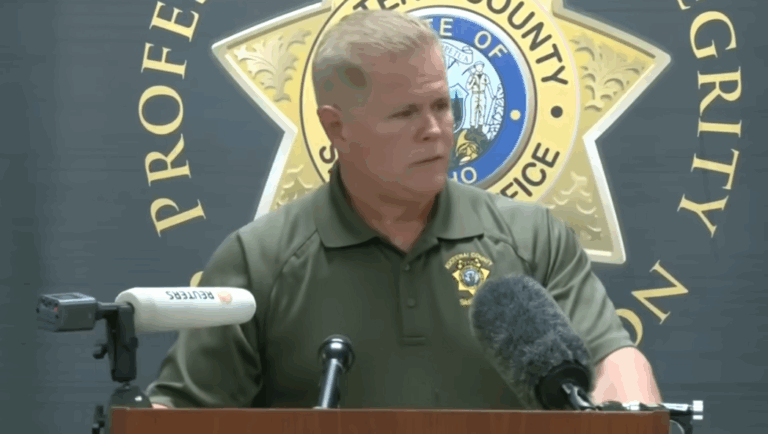Wess Roley’s family has come under increased scrutiny in recent days, especially his parents, Jason Roley and Heather Lynn Kuuipo Cuchiara. Two seasoned firefighters were killed in the Idaho shooting, which has spurred a national discussion about the gunman as well as potential patterns—particularly familial ones—that may have influenced the man who pulled the trigger.
A troubling picture emerges from examining court documents and firsthand recollections. In 2015, Heather filed for divorce, claiming Jason had physically abused her by pushing her down, punching holes in walls, and making obscene threats. In particular, she recalled that Jason threatened to either set up a sniper rifle outside her house or completely burn it down. Those early years carried emotional significance for a ten-year-old child that might be remarkably comparable to what clinical psychologists refer to as a “trauma imprint.”
Given the gravity of Heather’s allegations, the judge initially issued a protective order. This was later changed, though, when Jason claimed he posed no threat to his son. This change permitted Wess to stay in contact with his father despite the court documents documenting a hostile, unstable, and unreliable parenting environment. It’s possible that this discrepancy caused misunderstandings and emotional wounds that were never fully healed.
Wess Roley – Personal and Professional Profile
| Attribute | Details |
|---|---|
| Full Name | Wess Roley |
| Age | 20 (at time of death) |
| Birthplace | Arizona, United States |
| Lived In | California, Arizona, Idaho |
| Parents | Jason Roley (father), Heather Lynn Kuuipo Cuchiara (mother) |
| Siblings | Unknown |
| Education | GED, former track runner, class of 2024 (Arizona) |
| Career Aspirations | Firefighter, worked in tree service industry |
| Cause of Death | Apparent suicide following shooting |
| Notable Incident | Suspect in fatal Idaho firefighter shooting |
| Official Source | CNN Coverage |

Wess had already relocated across three states by the time he was a teenager, searching for stability in places that might not have provided it: California, Arizona, and Idaho. He vacillated between being charming and extremely unpredictable, according to friends and former classmates. One peer pointed out that dealing with him could be emotionally taxing, saying that “you had to take him in doses.” Others recalled him as someone who could suddenly become verbally aggressive but also made them laugh, especially when they played airsoft.
Wess appeared to have become more detached from any organized setting during the previous 12 months. According to reports, he was living out of his car and had little contact with his family, despite having earned his GED and stating that he wanted to be a firefighter. Dale Roley, the grandfather, informed reporters that Wess had not spoken to him in more than a month after losing his phone. This illustrates how easily social ties—even those within a family—can deteriorate when communication and trust are lost.
Wess appeared to be figuring things out by working in the tree service industry, which his family had been in for a long time. But that delusion came crashing down. According to his grandfather, Wess started the Idaho brush fire that would turn into the first responders’ lethal trap using a flint fire starter. Wess fired from the treeline, using his climbing skills developed while working as an arborist. The nation and his loved ones are in shock over the eerie irony of a young man who dreamed of fighting fires but instead planned a lethal ambush for those very heroes.
The roles that Heather and Jason played as parents are now the focus of conjecture, sorrow, and condemnation. Jason acknowledged that since a family get-together last year, he hadn’t seen his son. When questioned about the previous claims of violence, he remained silent. Heather, on the other hand, remained silent in the face of repeated questions from the media. The mystery surrounding Wess’s development in the weeks preceding the attack is further compounded by the parents’ silence, which may have been a protective barrier due to their grief.
Reporters and law enforcement were able to piece together through strategic investigation that Wess had five minor encounters with law enforcement in Idaho, but none of them involved criminal charges. Dale claims that he had a long rifle and a shotgun, and that he was a lawful gun owner. Although the presence of other firearms has not been ruled out by authorities, the shotgun was confirmed as the weapon used in the ambush.
Wess Roley’s story reflects a larger crisis: an increasing number of American youths are experiencing emotional instability, alienation, and identity issues. Divorced, abused, or neglected families leave behind voids that are not always immediately noticeable but have a significant influence. The frequency with which these cases share characteristics—such as early exposure to violence, changing home environments, limited access to mental health support, and untreated behavioral issues—is especially concerning.
The path ahead is paved with intolerable contemplation for Heather and Jason. For reasons that no parent ever wants to deal with, their son has made national headlines. However, their tale also serves as a warning to society as a whole. If the trauma cycle is not broken by empathy, counseling, or steady support, the results can be especially disastrous. The Roleys are not the only ones who experience that cycle. It is evident in a number of public tragedies, such as the Sandy Hook shooting and the ongoing high school massacres in the United States.
When discussing parental responsibility, public figures who were able to keep their kids out of trouble have frequently been compared. Under intense public scrutiny, Michelle Obama famously described the love and discipline she put into raising Malia and Sasha. In order to support his son John David, who is now a successful actor, Denzel Washington highlighted the importance of a strict yet loving home. Although these families faced difficulties, they placed a high value on stability, which worked remarkably well.
Wess’s childhood, on the other hand, appeared to have been characterized by instability, sporadic emotional validation, and a lack of constant parental presence. Access to weapons, a nomadic lifestyle, and that emotional void all combined to create a recipe for catastrophe.
Tony Cuchiara, Wess’s stepfather, expressed the family’s collective grief in moving words, characterizing their emotional terrain as “broken.” Even though it is brief, this acknowledgement acts as a subliminal reminder of the silent destruction left behind by actions that appear both senseless and deliberate.
In addition to the death toll, this tragedy is especially devastating because of the reverberations it causes. It compels society to consider how we assist young people, especially those from unstable or broken homes. The stakes have never been higher for anything from meaningful adult relationships to school engagement, from community mentorship to access to mental health services.


